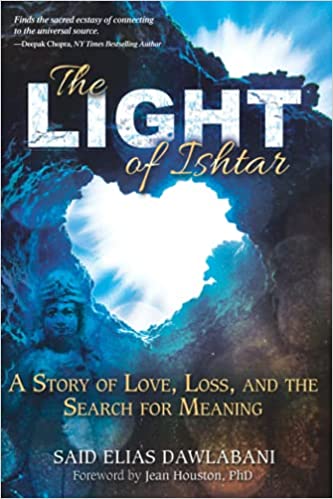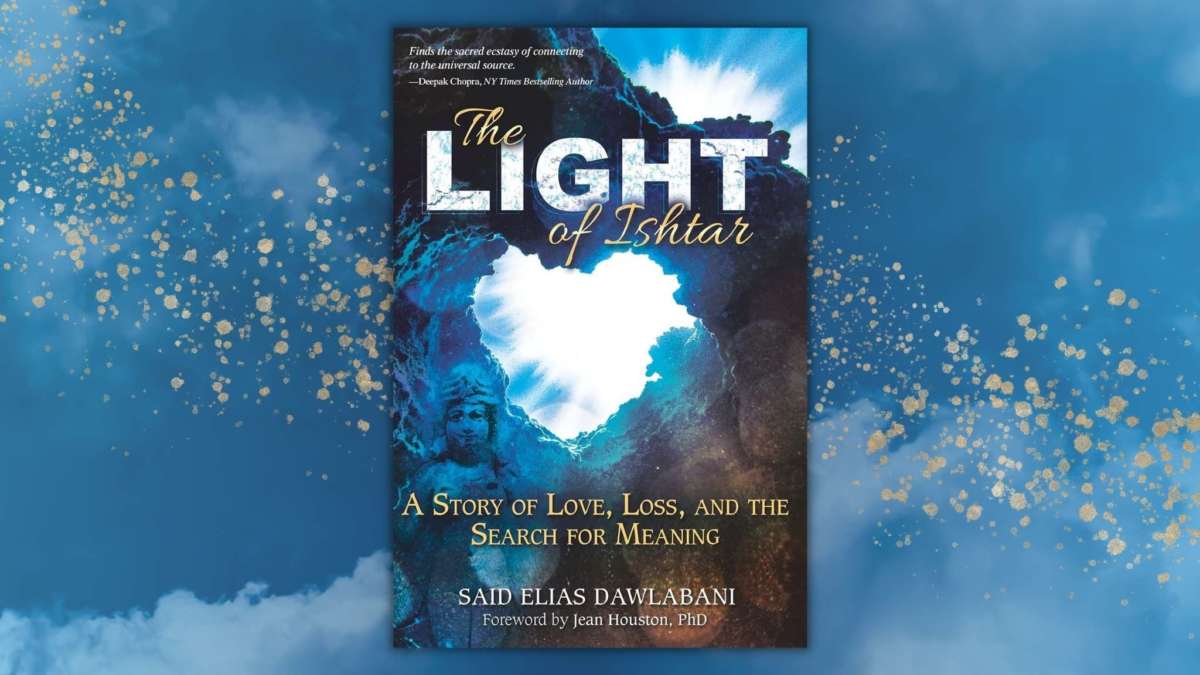The Light of Ishtar: A Story of Love, Loss, and the Search for Meaning by Said Elias Dawlabani
Elza Maalouf was destined to change the world. From the very start, as she grew in her mother’s womb, the debate over her existence, whether she’d be her family’s fourth boy or the women’s long-awaited girl, was like “a tug of war between the patriarchal gods and matriarchal goddesses disputing the outcome.” And, perhaps, if her life’s story was merely that, a story, Elza’s journey would lead somewhere more befitting of the woman, and hero, she is. Alas, reality is rarely so straightforward or kind.
Born in Zahle, Lebanon, she became one of many women subject to the patriarchal thumb that hovered over society. Undeterred by its looming presence, however, and with the help of her parents, she endeavored to become a champion for cultural and political reform in Palestine, Kuwait, Dubai and Syria as well as for women’s rights across the Middle East. Like the ancient Mesopotamian goddess Ishtar, “Elza has been a renowned warrior,” but unlike a goddess, Elza is only mortal. Her story is by turns triumphant and devastating as her brilliant mind falls into the cruel grasp of dementia.
HUSBAND’S POIGNANT BOOK IMMORTALIZES WARRIOR WIFE
In his poignant book The Light of Ishtar: A Story of Love, Loss, and the Search for Meaning, Said Elias Dawlabani, Elza’s loving husband, immortalizes the woman he knew his wife to be before a neurodegenerative disease forever changed both of their lives. Dawlabani asks, “How does one grieve the loss of essence of soul and of mind and spirit while the physical presence remains?” As his readers begin to meditate on that, Dawlabani introduces them to Elza: the child who, at age two, demanded the attention of everyone in the room; the compassionate and generous girl who looked out for those less fortunate; the young woman who, hungry for knowledge, eagerly consumed spiritual and philosophical writings; the diligent law student whose education rekindled her rebellious spirit. The list goes on.
Alongside his own rendering of Elza, Dawlabani shares passages from her journals and unpublished memoir, Lifting the Veil, allowing readers to see not only an external perspective but an internal one — and both are thoughtful scribes. The construction of this narrative imparts a rather comprehensive view of both the individual story it’s relaying as well as coping with loss. Dawlabani’s expression of grief — the sorrow, the anger — feels all the more intense for readers after having met Elza through his words and, more intimately, her own. This multilayered perspective evokes empathy not just for the author’s personal loss but, by virtue of Elza’s work, an even greater one.
A TRIBUTE TO BRILLIANT MINDS AND A POWERFUL LOVE STORY
Don’t let the somber nature of this book deter you. There are moments of love and success to be found within its pages. In telling Elza’s story, Dawlabani reflects on his own spiritual journey: finding inner peace, serving a higher purpose, embracing universal truth and more. He introduces readers to the work of Elza and other brilliant minds, offering a glimpse of the Integral Theory and Spiral Dynamics frameworks through which they approached humanitarian issues. He also explains his own work in the field of economics, which, through the lens of Spiral Dynamics, expanded their shared mission for change and progress. And through it all, Dawlabani never misses an opportunity to express his gratitude for the woman who became “an unexpected answer to an unspoken prayer.”
Above all, The Light of Ishtar is a powerful love story — and Dawlabani’s moving love letter to Elza. His references to mythological figures like Ishtar, Tammuz and Gia among others aid this exploration of life, love and loss, and the narrative framing makes the book truly memorable. Readers will no doubt walk away feeling inspired to connect with a higher purpose and live a transcendent life.
RELATED POSTS
“My Wife Said You May Want to Marry Me:” A Memoir of Love, Loss and Healing
“Living in Color” Paints Love as the Best Treatment in One Couple’s Cancer Journey
“Good Grief” Guides the Bereavement Journey, and There’s No Right or Wrong Way





